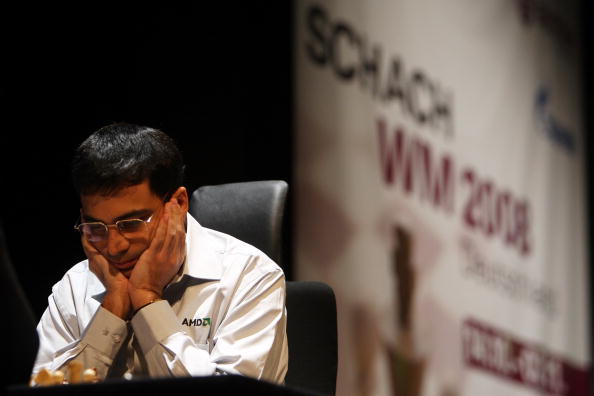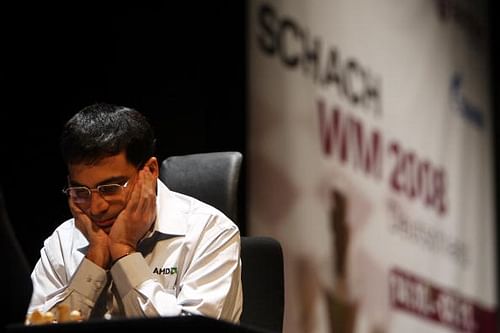
Brain-ageing expert's advice to Vishy Anand: Visit a doctor before defending world title

Vishwanathan Anand
Here is an interesting press release from Living the CR Way on the neurobiology of chess. We are not, in any way, related to the company, but felt the press release was interesting enough to share.
Improved Cognitive Function in Older Adults Can Be Achieved with Calorie Restriction, Blood Sugar Management, Says The CR Way
OSSINING, N.Y., Oct. 14, 2013 /PRNewswire/ — As people age, they often experience memory loss, reduced concentration, and other cognitive problems. Diet and lifestyle, though, can improve cognitive performance and reverse some aspects of brain aging. Consider the world chess champion – chess genius, Viswanathan Anand – who in November will defend his title against the highest rated player in chess history, Magnus Carlsen.
Pundits predict a Carlsen win, based on the recent games and tournament scores of the two players. Carlsen beat Anand handily in their most recent encounter in June. But Anand should not be counted out. He has successfully defended his world championship title many times and is known for his excellent preparation and creative play.
The biggest challenge Anand faces may be physiological. According to brain-aging expert, Dr. Timothy Salthouse, cognitive capabilities usually peak at 22, the very age Carlsen is now. Salthouse finds that on average, by age 28, signs of cognitive decline begin to show up. By 38, signs of memory loss increase. Most people may not notice these declines until much later, but elite chess players do: Their careers stand or fall on their peak intellectual performance. Anand is 43, almost twice Carlsen’s age.
At the recent Sinquefield Cup chess tournament (St. Louis, MO), Carlsen and Levon Aronian the world’s top-ranked chess players, joined the two top-ranked U.S. players, Haraku Nakamura and Gata Kamsky, for a round-robin competition. True to Salthouse’s findings, the players’ scores correlated negatively to their ages:
Carlsen: 22 years old – won 4.5 games out of 6 (A half game results from a draw.)
Haraku Nakamura: 25 – 3.5
Levon Aronian: 30 – 2.5
Gata Kamsky: 38 – 1.5
So should chess grandmasters retire at 23?
“No,” says Paul McGlothin, president of LivingTheCRWay.com and instructor of online classes for cognitive improvement.”Science shows that people can get rid of the brain fog they experience as they get older.” If Viswanathan Anand walked in the door and asked how to get an edge for the upcoming match, McGlothin would first ask him to visit a doctor and have a thorough physical exam.
With his doctor’s OK, one idea Anand would be advised to explore is blood sugar management. Research suggests that keeping blood glucose at healthful levels improves short-term intellectual performance and protects against age-related decline of critical parts of the brain that are important for memory and decision making. Further: A pre-game exercise regimen, planned for Anand, could help him relax and improve concentration.
Who wins the world chess championship may not matter to some people, but maintaining a healthy brain interests nearly everyone. People need their brains to function well for everything from remembering names to excelling at work. The same principles Anand can apply to retaining the world chess championship are helpful for any endeavor.